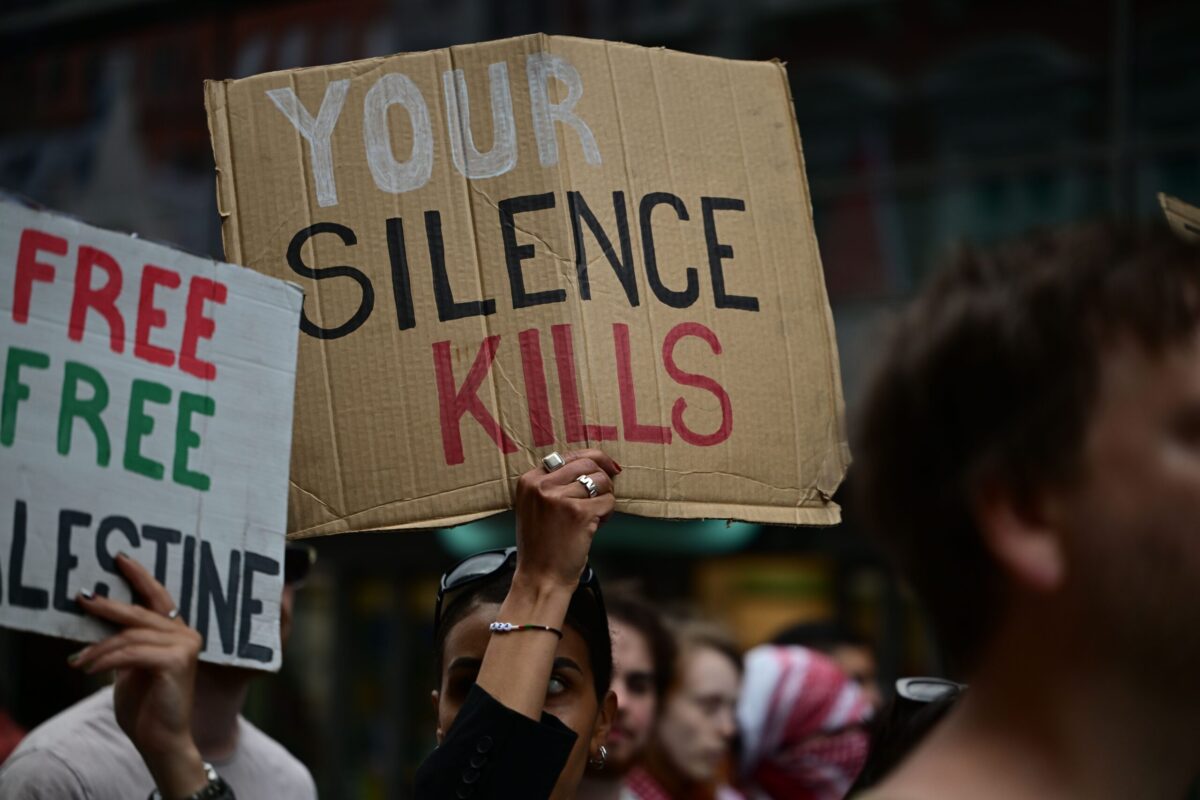Eurovision on the Slippery Slope

Author: Žikica Milošević
As far back as 2022, I wrote that the competition was in danger of being the last. Although that won’t happen for some time – 2022 ominously signaled a dangerous trend of scandals that have continued in this competition, the most scandalous to date.
IT USED TO BE A FLOWER GARDEN…
There’s an idea that the EBU (European Broadcasting Union) is an organization that tries to reconcile all the conflicting trends in the world, which sociologically converge at this competition perhaps more than others, precisely because it has been avant-garde in including everyone: non-European countries (Morocco – only once, in 1982), Israel, socialist countries (Yugoslavia) with the five-pointed star on its flag until 1991, the LGBT population, Eastern European countries, and finally, Australia. Everyone was welcome, and it was a great fest where you could be quirky to your heart’s content and still be popular (Verka Serduchka in 2007 is the perfect example of how you get a hit that way).
But in recent years, the world has changed. Cancel culture has made it so that people seem to be eagerly waiting to voice their conflicting opinions, to be “righteous,” to condemn someone, to argue. The aggressive element of social media has made the competition rapidly different from, say, 2004 in Istanbul or 2008 in Belgrade, which are considered high points. However, the EBU has incredibly clumsily handled every problem.
NEIGHBORLY OR BLOCK VOTING
The juries always went against the grain of viewers, so the advent of SMS voting brought “democratically elected winners,” who were often from Eastern Europe if including Greece, Turkey, Israel, and Finland, geographically. Balkan countries voted for each other, and ex-USSR countries did the same, as did the Scandinavians. Greece and Cyprus always voted for each other, as did Ireland and the UK. Then the EBU decided to bring back the jury because the largest countries were dissatisfied, and some even left the competition (Italy). And then, surprise, Eastern Europe never won again, except for Ukraine in 2016 and 2022, both heavily influenced by war and politics. In 2022, the EBU nullified the jury votes of many countries and invented their votes for these juries, which was the height of the scandal. After that, Romania and Montenegro withdrew (these are two countries whose votes were nullified), as well as North Macedonia. The “Big Five” are guaranteed finals, which drove away the Turks.
NO POLITICS?
Of course, there is. It’s said that in 1989, the victory of the group Riva from Yugoslavia was a signal of support not to disintegrate, but we didn’t understand it. Baby Doll was punished in 1991 for the Yugoslav war with the last place, while in 1990, Toto Cutugno announced “Unite(d) Europe” and won. The British became the “pariahs” of Eurovision after Brexit. Wars? Mental gymnastics are needed to convince viewers that Russia (and Belarus) can be disqualified because of the war, but Israel cannot. Hence the demonstrations. Of course, we can go back to 2003 and wonder why the countries that brutally attacked and occupied Iraq in the “Coalition of the Willing” weren’t expelled from Eurovision: the UK, Poland, Spain, and the Netherlands. The other two countries from the “Coalition of the Willing” weren’t even there: Denmark couldn’t participate that year, and Italy had withdrawn. Or in 1999, when Yugoslavia (Serbia and Montenegro) was attacked. Why weren’t NATO countries disqualified then? Regarding Israel, the protests are somewhat naive: Israel couldn’t be expelled because the sponsor, Moroccanoil, is from Israel. And that’s where any discussion ends. My stance is that no one should be expelled, neither they nor the Russians, because of politics, since others have been in conflicts, too, and nothing happened to them. The UK could have been expelled three times since 1990, and they didn’t lose a hair. Except that they sometimes get zero points.
FINANCES
With the disqualification of Russia and Belarus and the withdrawal of a new contingent of countries, now even 10 Eastern European countries don’t participate in Eurovision. For two years now, the number of participating countries has been 37 – in Belgrade in 2008, at the peak, there were 43. Bosnia and Herzegovina hasn’t participated for years due to debt. When Turkey withdrew (the conspiracy theory is that it was because of the “bearded woman” in 2014, but it actually happened two years earlier due to the introduction of juries and the “Big Five”), and Russia was expelled, the costs for smaller countries increased sharply and proportionally, further motivating them not to participate.
THE JURY HAS TOO MUCH POWER
Eurovision might be on the path to recovery in the semifinals because there are no juries there, only public votes, but the final has been scandalous for the second year in a row. And people intuitively feel it – something is wrong. The winner doesn’t match the gut feeling. For a year now, petitions have been written for the public to carry 60% of the votes or two-thirds of the votes in the final, or even 75% as in Finland, which might be the best solution after the identical scandal in 2023 with Loreen and her jury-assisted victory, with loud public disapproval and chanting “Cha Cha Cha” as she took the stage to receive the trophy. Again a bit of politics: it was “known” that two new NATO members had to be first and second, but the public vote spoiled plans to hold the competition for ABBA’s anniversary in Sweden, so the jury ensured it wasn’t so. The same happened this year. There’s an irresistible feeling that the jury avoided giving points to Israel to prevent them from winning, supported by public votes, and putting the EBU in a difficult situation – how to organize the competition again in Tel Aviv? And did they lobby or opt to give points to the biggest favorite, Croatia? No, that was too “non-inclusive,” although it was a clear favorite in the bookmakers. They avoided two great songs, from France and Italy, and “out of precaution” Ukraine, to avoid sweating over the organization for 2025 again. The comment “Baby Lasagna forgot to put on a skirt, that’s how he could have won” doesn’t sound far from the truth, because it seems that among several good candidates for victory, Nemo won because he wasn’t from a “troublesome country” (Ukraine, Israel), and is perfectly inclusive, as now the media buzzes about what non-binary means and what flag he smuggled in.
ISRAEL, UKRAINE, POLITICAL CORRECTNESS…
The only real reason to remove Israel from the festival could be to spare the competitors from stress and insults, as Eden Golan heroically endured harassment from part of the audience (though she didn’t help with her statements). The same goes for Russia – the only reason is not to prevent the “aggressor from spreading their culture” but to spare the poor contestant from insults. Everything has gone awry with hidden messages – the nails of the Portuguese representative in Palestinian scarf patterns forced the EBU to show, as far as we understood, the semifinal performance on TV, only for the final performance to be on the YouTube channel an hour later. It’s unbelievable how far it goes. On the other hand, Norway was one of several countries reportedly close to leaving Eurovision 2024. On the day of the final, reports suggested that even four other countries – Ireland, Portugal, Switzerland, and the United Kingdom – held “crisis meetings” with the EBU, threatening to withdraw, all because of Israel. If it’s about politics, it’s too much. The more something is imposed, the more people resist, and it goes both ways – the more Israel’s right to participate was pushed, the more some demonstrated, both participants and the audience, and on the streets. The more they booed Eden Golan (who is on the list of “terrorists” of Ukrainian nationalists because she sang as a child in Crimea in 2016 – which is another story), the more people voted for her, and she almost won the public vote (she was second). Of course, Ukraine also received support votes, but this time it’s not 2022, so it’s not certain they will win out of “solidarity.” It’s worth saying that both Israel in 2024 and Ukraine in 2022 had genuinely good songs (I said in 2022 that Ukraine would win even before the war, “Stefania” was a great song). The more socio-political correctness is pushed like now with “non-binariness” or similar new things, even the tolerant Eurovision audience is already on edge, which is already explosive when connected with politics. The expulsion of Joost Klein from the Netherlands is harsh and too severe, even though he didn’t behave perfectly, and that’s a special scandal – destroying someone’s dreams with one stroke.
THE UK DELUGE AND WATERLOO
The British are screaming to the heavens again – they got zero from the public. Yes, they send mediocre songs (Olly Alexander cared more about choreography that looked like sex in a dirty locker room than vocal performance. Choreography “just to show you I’m gay” (believe it or not, Olly, we know, it’s okay, focus on singing man!) didn’t attract the target audience, but, incredibly, they got nothing. They might withdraw, as their failures are epic.
Both the SFRY and FRY saw signs of their collapse on Eurovision before that. First, weaknesses are seen in stadiums and on Eurovision, and then everything else comes. And there are many. Nemo stated that something needs to be fixed at Eurovision, and that’s true, but millions of viewers have completely different visions of what needs fixing. We don’t know how the EBU will resolve these conflicting desires. As for the winner, some say there’s karmic symbolism in Nemo breaking his trophy – because “he didn’t deserve it.”
All of this doesn’t bode well. In the year celebrating 50 years of the song “Waterloo” winning, Eurovision has experienced its Waterloo. Almost.
